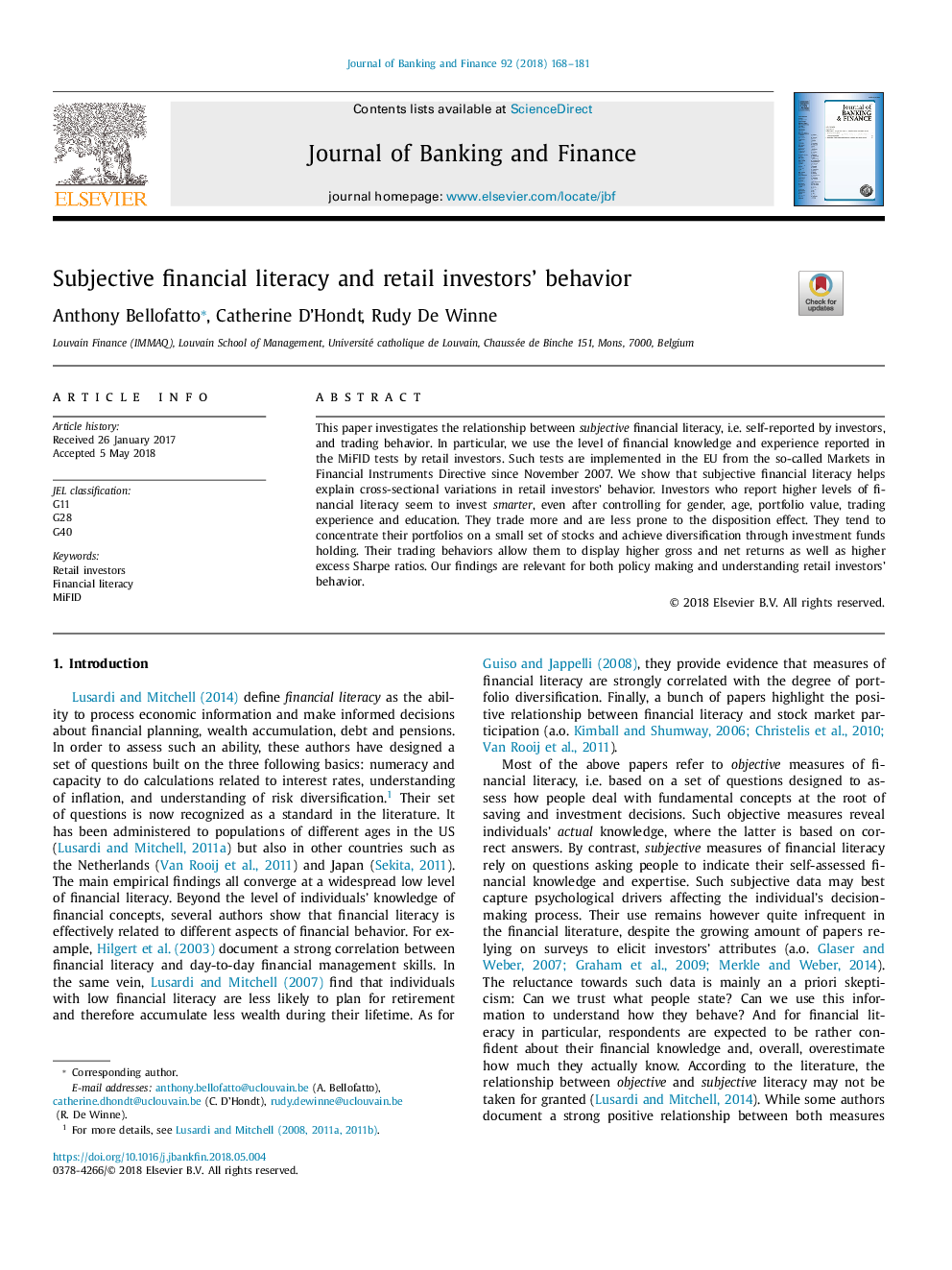| Article ID | Journal | Published Year | Pages | File Type |
|---|---|---|---|---|
| 7356516 | Journal of Banking & Finance | 2018 | 14 Pages |
Abstract
This paper investigates the relationship between subjective financial literacy, i.e. self-reported by investors, and trading behavior. In particular, we use the level of financial knowledge and experience reported in the MiFID tests by retail investors. Such tests are implemented in the EU from the so-called Markets in Financial Instruments Directive since November 2007. We show that subjective financial literacy helps explain cross-sectional variations in retail investors' behavior. Investors who report higher levels of financial literacy seem to invest smarter, even after controlling for gender, age, portfolio value, trading experience and education. They trade more and are less prone to the disposition effect. They tend to concentrate their portfolios on a small set of stocks and achieve diversification through investment funds holding. Their trading behaviors allow them to display higher gross and net returns as well as higher excess Sharpe ratios. Our findings are relevant for both policy making and understanding retail investors' behavior.
Related Topics
Social Sciences and Humanities
Economics, Econometrics and Finance
Economics and Econometrics
Authors
Anthony Bellofatto, Catherine D'Hondt, Rudy De Winne,
